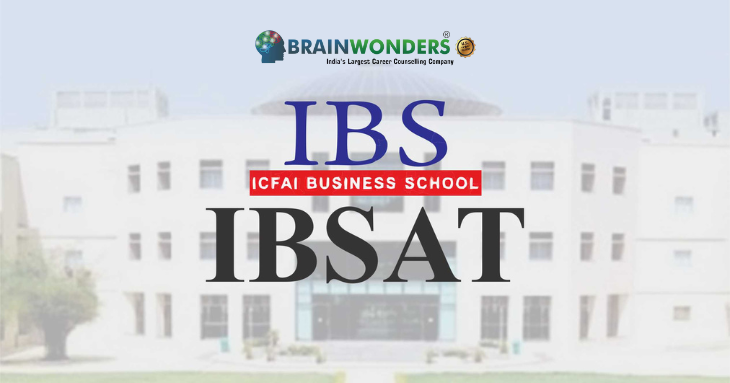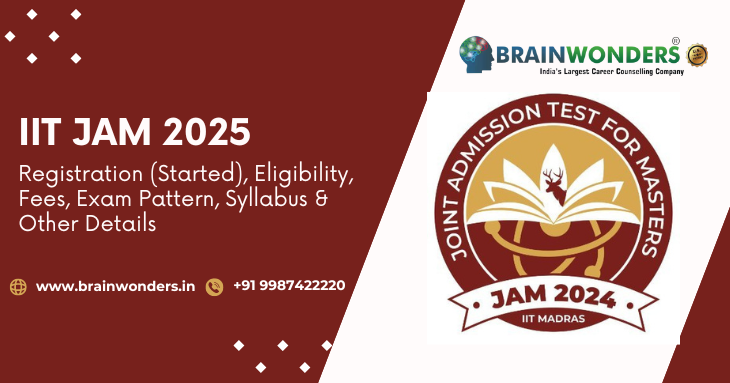

Take Brainwonders Career Test and make the right decisions for your college and course ahead
Let your unique personality, strengths, and traits guide to make the best decdision of your life!
Blog
10 January,2024 | By Brainwonders

This era is defined by our dependence on technology and the pervasive presence of the internet. Computers have become an integral part of our lives, with students taking computer courses to advance their education and professionals using them for everything from data storage to product design. We can no longer imagine a world without computers and the internet, as they have become essential to everyday life, from medicine to education. It is clear that the internet, technology, and computers have become global phenomena, and if we hope to survive in this modern world, we must continue to embrace them.
So, for students who want to explore the technical side of the future, computer courses are divided into three categories:
Diplomas, Undergraduate, and Postgraduate Courses.
Let us study all these courses in detail:
Diploma courses offer comprehensive education, enabling students to gain the skills and knowledge necessary for success in the technology industry. These programs are designed to provide a concise overview of the technical aspects of computer science and its many specialisations. With diploma courses ranging from three months to one year, topics such as cybersecurity and software engineering can be explored with greater depth and clarity.
Other popular offers include Diploma in Artificial Intelligence, Machine Learning, Data Science, Computer Networking, and Database Management Systems. Students can thus gain an understanding of these different specialised areas and how they interconnect as part of their diploma program. With structured curriculums and experienced instructors, a diploma course provides invaluable insight into today’s competitive technological landscape.
A Diploma in Computer Application is a one-year program designed to equip students with the foundational knowledge of computer applications. This course covers topics such as Microsoft Office, internet applications, operating systems, database management systems, HTML, and more. It typically lasts anywhere from six months to one year and provides learners with a comprehensive understanding of software, tools, hardware, and networking principles. Upon completion of this diploma, students will have the skills they need to pursue employment in a variety of areas related to computer technology.
Know the Salary of a Computer Engineer.
A diploma in Computer Science is a certificate course which takes 1 to 3 years to complete. This course teaches students about the knowledge of design, development of software and programming, and coding in computers. This course is equivalent to a bachelor's degree, which covers concepts like programming, database management systems, web development, computer security, etc.
Bachelor's level course duration is 3 years, but some universities abroad offer it for 4 years. Undergraduate Computer courses prepare students for the dynamic industry through the blend of theoretical and practical knowledge. Computer courses equip students to join companies like HP, Microsoft, Google, Amazon, Flipkart, Paytm etc., where some roles on offer are Computer Engineer, Computer programmer, Computer Network Architect and Cloud Architect. Students can expect to earn between Rs 3 LPA to 20 LPA, depending on the companies and roles they join. Some undergraduate courses in computers are mentioned below:
BSc Computer Science, abbreviated as BSc CS, is a 3-year undergraduate program that deals with the subjects and topics related to computer science, computer application, and its services. Covering basic and advanced concepts of the subject, the course is taught at the leading universities in the world. The main aim of this program is to create quality professionals and research fellows who can work in every sector of the world by implementing computer systems and software technology.
Also Read: What is BSc course all about? Know the full-form, eligibility & scope.
BCA complete form Bachelor of Computer Application is a 3-year undergraduate course that imparts knowledge on computer application and software development basics. Students transition from basic knowledge to an advanced understanding of the subject. BCA subjects include database management systems, software engineering, operating systems, web technology, and computer languages such as HTML, C, C++, and Java.
BTech CS is a 4 year UG course that studies practical and theoretical knowledge of computer hardware and software. This course emphasises the basics of computer programming and networking while comprising many topics. The coursework studies the technical aspect of the field that deals with Software Development, Hardware Design, Networking, Cybersecurity, etc. After the course, B.tech CSE job profiles are Data Analyst, Software developer, Game developer, networking engineer, testing engineer, database administrator, etc. The top recruiting companies are TCS, Infosys, Hexaware, Syntel, Wipro, etc.
Recommended Read: Difference you need to know about B.tech and B.E Degree.
Postgraduate courses last from 1 to 2 years, dedicating every semester to the subject's practical and academic aspects. Students can find various job opportunities in computer science, or they can go for higher studies by taking a PhD which also has a great scope. To study computers abroad, candidates must have proof of an English proficiency test that includes IELTS, TOEFL, or PTE.
MCA Full Form is Master of Computer Application. MCA is a postgraduate course that trains students in the various aspects of computer programs, application software, computer architecture, operating systems and many more. The MCA Course duration is 2 years. MCA course fees from a private college range between INR 30,000 to INR 2,00,000, whereas for government colleges, the course fee can be anywhere between INR 1,500 to INR 30,000. The program is highly sought-after in India, but the universities abroad do not offer this course. Instead, MS in Computer Science is offered in its place.
MSc Computer Science is a two-year post-graduation program to develop advanced programming skills and strategies to solve various logical challenges using different programming languages. MSc Computer Science or CS focuses more on developing software and networking-based skills. The main concepts covered in the field include Cyber Security, Fundamental Data Structure, Operating Systems and Networks, Algorithms and Theory of Computing, etc. There are a lot of career opportunities after completing M.Sc in Computer Science, such as working as a Networking Master, Software Developer, Tester, Web Developer, Cryptography, etc.
Find About: Everything about your career as a computer programmer.
M Tech Computer Science is counted among the most rigorous Computer courses; the program has seen many takers more excellent job prospects after completion. It is a 2-year master's degree in engineering that provides the student with the ability to understand fundamental principles of science and technology, solve problems and continuously learn multidisciplinary concepts through the MTech CSE Syllabus.
Wondering If Post-Graduate In Computer Science Makes Sense? Click Here To Know The Answer
Basic Computer Course includes studying computer hardware, software, applications, shortcuts, and the internet. Some of these courses are mentioned below:
Visit Page: Let Your Personality Guide You || Brainwonders Personality Test || Know Your Personality.
Some Common topics taught in these courses are:
| Name of the Colleges | Average Fees (INR) |
| Vellore Institute of Technology | 7,83,000 |
| IIT Bombay | 2,11,400 |
| IIT Kanpur | 2,15,600 |
| IIT Kharagpur | 82,070 |
| IIT Delhi | 2,24,900 |
| IIT Roorkee | 2,21,700 |
| IIT Guwahati | 2,19,350 |
| IIT Hyderabad | 2,22,995 |
| NIT Trichy | 1,61,250 |
| University of Delhi | 1,47,000 |
| Birla Institute of Technology and Science | 1,78,000 |
| Guru Gobind Singh Indraprastha University | 1,17,000 |
Want To Know In Depth About These Courses? Connect To Our Career Counsellors
| Job Profile | Average Salary |
| Computer Operator | INR 184k |
| Computer Technician | INR 300k |
| Computer Programmer | INR 480k |
| Computer Analyst | INR 457 k |
| Senior Computer Operator | INR 230k |
| Computer Operations Analyst | INR 387k |
| Computer Processing Scheduler | INR 411k |
| Tally Assistant | INR 780k |
| Office Coordinator | INR 220k |
| Data Entry Operator | INR 180k |
| Accountant | INR 249k |
| Graphic Designer | INR 305k |
Are you uncertain which computer course is ideal for your child? Our Brainwonders experts can provide the necessary guidance to make an informed decision. Our knowledgeable staff will assess your child's skills and interests, making sure they choose the right course that meets their needs.
1. Which computer course to pursue after the 12th?
Answer: You can pursue Diploma Courses in Computer Science or Computer Application after the 12th. You can also opt for an undergraduate computer course, such as BSc in Computer Science.
2. How long is an undergraduate computer course?
Answer: The undergraduate computer course typically lasts between three and four years. For students looking to pursue a career in the field, seeking guidance is a crucial step in establishing a successful pathway. Brainwonders provides expertise in this area, while also offering valuable insight into one's personal potential.
3. What are basic computer skills?
Answer: Developing fundamental computer handling capabilities is essential for success in the modern world. Computer skills classes are designed to equip professionals with necessary know-how on managing files, utilising word processing software, working with spreadsheets and databases, producing presentations, accessing online information, and more. With these comprehensive resources and training, individuals will have the knowledge necessary to perform vital tasks and capitalise on opportunities.
4. What are some of the basics of the IT course?
Answer. The Basics of the IT course is designed to help you develop an essential understanding of computer basics. Through the basics of the IT course, you will learn how to operate MS Office effectively in order to create presentations, write messages, and compute everyday tasks. Additionally, you will also gain knowledge on how to save or transfer data from one machine to another. This course is the perfect starting point for any aspiring computer user who wants to gain a fundamental understanding of computers.
5. How much does it cost to do a Computer Course?
Answer. Computer courses have varying fees depending on the institution offering them and their level of difficulty. Online certifications are available, but they may cost more or less depending on their complexity and where they are taken. Generally, the cost ranges from INR 35k to INR 100k.
6. What is the average salary one can expect after completing a computer course?
Answer. The compensation package for software executives is determined by the level of their role. For entry-level positions, the average salary is around INR 3-6 lakh per annum. Those in higher-level positions such as Team Leads and Managers may expect a salary ranging from INR 7-12 lakh per annum.
7. Which computer course is more in demand?
Answer. Computer courses such as Web Programming, Database Administration and Ethical Hacking are in high demand due to their wide-reaching applications. With these skills, professionals can create dynamic websites, secure databases and protect networks from malicious attacks. Furthermore, courses such as Data Science, Ethical Hacking, Artificial Intelligence, Graphic Designing, and Animation are highly sought after, with expertise in each field driving innovation and growth.
8. Which computer course is the best for jobs?
Answer: Top job courses include software development (Python, Java), data science, web development, cybersecurity, cloud computing (AWS, Azure), digital marketing, and networking. Choose based on your interests and industry trends.
Take Brainwonders Career Test and make the right decisions for your college and course ahead
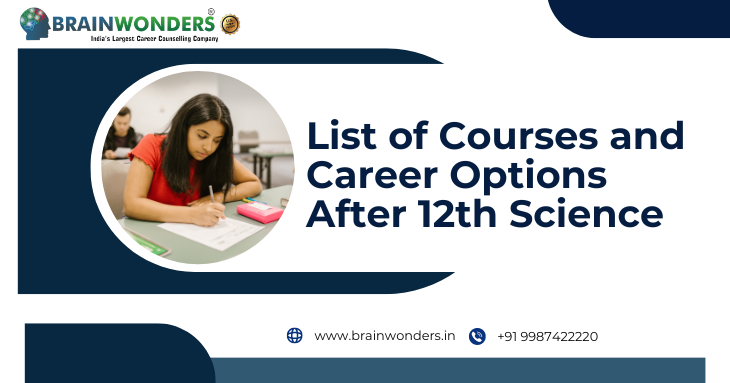
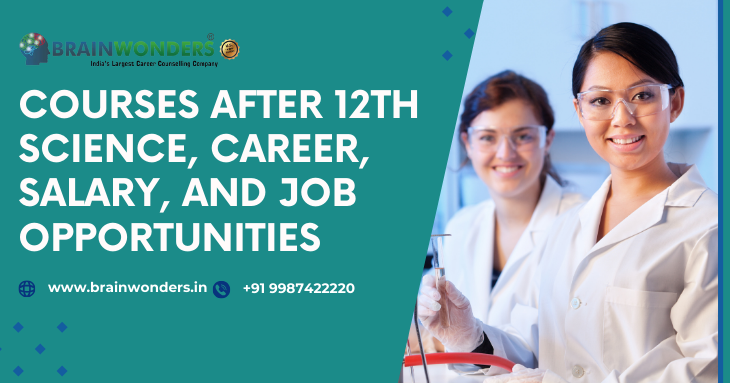
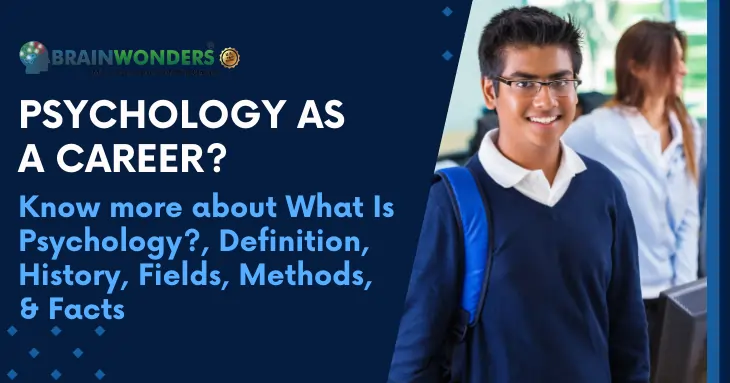
,_Syllabus,_Pattern,_Old_Question_Papers.png)
